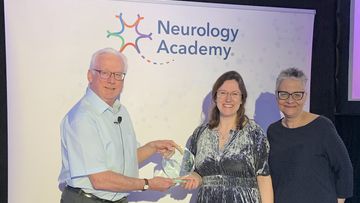Audit of care home residents with parkinsonism in Salford
Introduction
Parkinsonism is common in care home. The prevalence and demographics of care home patients with parkinsonism remains poorly investigated. Previous studies suggested that around 5-7% care home patients have parkinsonism. (Susan L. Mitchell MD 1996) (Robert J.Buchanana 2002) The 3 year mortality was 50% in care home with parkinsonism. (Fernandez HH 2002) Despite that, the diagnosis and management of care home patients with parkinsonism were suboptimum. (JP. 1991) (Weerkamp NJ 2012) (Makoutonina M 2010)
Objective
- Understand the demographics of care home residents with parkinsonism in Salford Royal Foundation Trust.
- Investigate reason for admission of care home residents with parkinsonism.
- To review the quality of advanced care plan in care home residents with Parkinsonism.
Methods
We obtained a list of care home residents with idiopathic Parkinson’s disease, vascular parkinsonism and parkinsonism plus syndrome from community geriatricians in February 2018. Following this, we collected data about patient demographic data, hospital admissions in the last 24 months and advanced care plan using EPR. The data was processed using Microsoft Excel.
Results
56 patients (27 male) with the mean age of 79.89 (SD 8.14) w1ere included in this study. 36 of them also have the diagnosis of dementia.
Parkinsonism | Number of patients |
| Idiopathic parkinson’s disease | 31 |
| Vascular parkinsonism | 8 |
| Parkinsonism-plus syndrome | 11 |
| Drug induced parkinsonism | 6 |
Staging of IPD
Stage | Number of patients |
| Stage 1 | 0 |
| Stage 2 | 4 |
| Stage 3 | 17 |
| Stage 4 | 8 |
Number of medications
Number of medications | |
| 0 | 13 |
| 1 | 32 |
| 2 | 8 |
| 3 | 3 |
Regular physician who reviewed patients
Community geriatrician | 31 |
| Neurologist | 11 |
| Neurolopsychiatrist | 5 |
| None | 9 |
34 of them had at least 1 admission in the last 24 months.
Reasons for admission | Number of patients |
| Infection | 11 |
| Fall | 6 |
| Reduced conscious level | 5 |
4 patients passed away since January 2018. None of them had up-to-date advanced care plan and one of them died in ED after CPR.
Number of patients | |
| Advanced care plan | 19 |
| Resuscitation | 25 |
| Preferred place of care/death | 18 |
MDT input | Number of patients |
| Physiotherapy | 14 |
| Occupational therapy | 11 |
| Speech and language therapy | 19 |
| Dietician | 22 |
Conclusion
The management of care home residents with parkinsonism is suboptimum. We should aim to improve their care in community and hopefully this can reduce unnecessary hospital stay.
Bibliography
- Fernandez HH, Lapane KL. “Predictors of mortality among nursing home residents with a diagnosis of Parkinson’s disease.” Med Sci Monit, 2002.
- JP., Larsen. ” Parkinson’s disease as community health problem: Study in Norwegian nursing homes. The Norwegian Study Group of Parkinson’s Disease in the Elderly. BMJ 1991;303:741e743.” BMJ, 1991.
- Makoutonina M, Iansek R, Simpson P. “Optimizing care of residents with Parkinsonism in supervised facilities. Parkinsonism Relat Disord 2010;16:351e355.” Parkinsonism Relat Disord , 2010.
- NICE. “NICE guideline [NG71] Parkinson’s disease in adults .” 2017.
- Robert J.Buchanana, SuojinWangb, ChunfengHuangc, Patricia Simpsond, Bala V.Manyame. “Analyses of nursing home residents with Parkinson’s disease using the minimum data set.” Parkinsonism & Related Disorders, 2002.
- Susan L. Mitchell MD, FRCP(C) Dan K. Kiely MPH Douglas P. Kiel MD, MPH Lewis A. Lipsitz MD. “The Epidemiology, Clinical Characteristics, and Natural History of Older Nursing Home Residents with a Diagnosis of Parkinson’s Disease.” Journal of American Geriatric Society, 1996.
- UK Parkinson’s Excellence Network. “UK Parkinson’s Audit.” 2015.
- Weerkamp NJ, Zuidema SU, Tissingh G, et al. “Motor profile and drug treatment of nursing home residents with Parkinson’s disease. .” J Am Geriatr Soc, 2012.
More Parkinson's Academy Service development Projects

'The things you can't get from the books'
Parkinson's Academy, our original and longest running Academy, houses 23 years of inspirational projects, resources, and evidence for improving outcomes for people with Parkinson's. The Academy has a truly collegiate feel and prides itself on delivering 'the things you can't get from books' - a practical learning model which inspires all Neurology Academy courses.